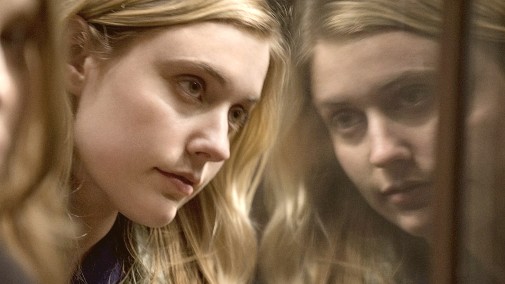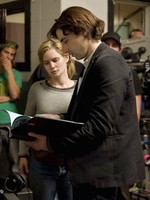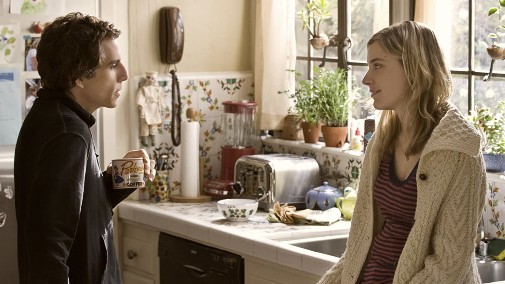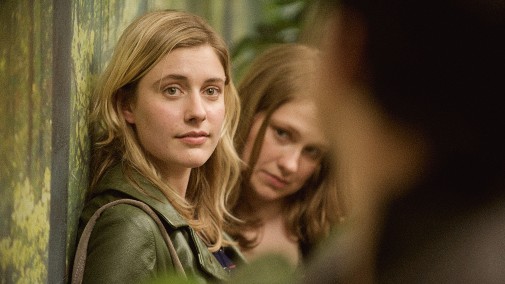
Once upon a time, long before she was an Academy Award-nominated director and screenwriter, Greta Gerwig was the acting princess of mumblecore. Along with the Duplass brothers and Joe Swanberg, she helped solidify the identity of that often-maligned subgenre, full of naturalistic dialogue and very little in the ways of storytelling. The actress quickly transcended the limitations of mumblecore and became a starlet of the independent American cinema from 2010 to 2016, starring in such gems as Damsels in Distress, Jackie and 20th Century Women.
Among her more frequent collaborators, Noah Baumbach stood out. She was his muse and he knew how to capture her talents like no other. Or was it the other way around? In any case, their first collaboration marked a turning point in both their careers. We're talking about Greenberg, which celebrates 10 years today…
 The sixth feature of Noah Baumbach marked the only time he wrote a script with his then-wife Jennifer Jason Leigh. Thanks to the autobiographical nature of the director's most recent works, Greenberg's legacy tends to be somewhat clouded by gossipy interest; Leigh filed for divorce later that year and Gerwig would become Baumbach's romantic partner. Even the way both actresses are shot gains a different quality nowadays. Gerwig is loved by the camera in all her awkward glory, while Leigh is chilly in her mystery but fascinating in her prickliness.
The sixth feature of Noah Baumbach marked the only time he wrote a script with his then-wife Jennifer Jason Leigh. Thanks to the autobiographical nature of the director's most recent works, Greenberg's legacy tends to be somewhat clouded by gossipy interest; Leigh filed for divorce later that year and Gerwig would become Baumbach's romantic partner. Even the way both actresses are shot gains a different quality nowadays. Gerwig is loved by the camera in all her awkward glory, while Leigh is chilly in her mystery but fascinating in her prickliness.
Greenberg is also Baumbach's most Los Angeles focused piece (yes, more than Marriage Story). The film is entirely set within the sunny metropolis and is beautifully shot by Harris Savides. It tells the story of two very different sorts of damaged people. One of them, Florence, is an efficient personal assistant that's helping her employer prepare for a family trip to Vietnam. During the vacation, his carpenter brother will be staying in his house, taking care of the family pet and hopefully building him a doghouse in the backyard. He's Roger Greenberg and he's an acerbic little thing, thorny and abrasive. An all-around asshole, in other words.

In Florence and Roger, Greta Gerwig and Ben Stiller find two of the best roles of their careers, breathing life into this astringent character study disguised as cringe comedy. While she's cripplingly self-aware, always apologizing and remarking upon her faults, he's arrogance given human shape. His stares are intense and there's always a complaint or two in the tip of his tongue. Whatever humor the film may produce out of these two poor souls comes in a jagged form, ugly and uncomfortably mordant. More importantly, it feels real and authentic, born out of two difficult personalities that the filmmakers never try to sugarcoat.
In many ways, Greenberg is a deeply unpleasant portrait of insufferable idiots. However, there's a streak of delicate humanity running through the film's organism. Baumbach may know his characters aren't well-adjusted people, but he loves them just the same. He also allows the actors to find the idiosyncrasies that make the narrative sing. The film's structure may seem simpler than those of Baumbach's previous works, but Greenberg is a daring exercise in tone, humor, and drama. It ushered in a run of films made by a more mature director that still managed to feel spritelier than before, more formally precise and affectionate too. Part of that quality comes from Gerwig.
While Jennifer Jason Leigh was Baumbach's principal collaborator in writing Greenberg, Gerwig's presence in front of the camera brings new dimensions to the director's oeuvre. It's easy to imagine a version of Greenberg that's too smothered by the misanthropy of its male protagonist, for instance. Thankfully, Gerwig's Florence is always there to counterbalance Stiller's vinegary characterization. She's sweet to a fault and projects a sense of emotional openness that fights against the potential cynicism of the premise. Gerwig brought a different kind of cinematic honesty to Baumbach's films. Even after they stopped working on the same projects, her influence persists.

In their three features (this, Frances Ha and Mistress America), it's impossible not to see the contributions of Gerwig, this new artist helping the older director create new refreshing art. Such is her influence and impact, that we should consider these films as much hers as his. The notion of directors as the only filmmakers worthy of being called auteurs is always troubling, but never more than when we denote such a great impact on the part of an actress and screenwriter like Greta Gerwig. In that regard, the duality of artist and muse becomes porous and difficult to parse out, both roles intermingling in many mutative possibilities.
Perhaps, then, we should call Baumbach Gerwig's muse. He's the fascinating personality that she reflected and refracted with her art, materializing a celluloid impression of his spirit. Even before Lady Bird and Little Women, Greta Gerwig was an auteur.